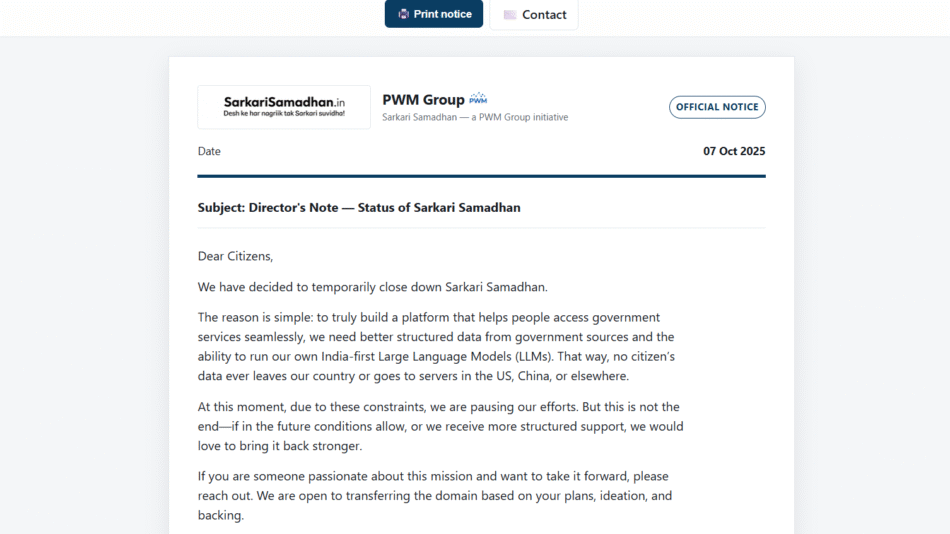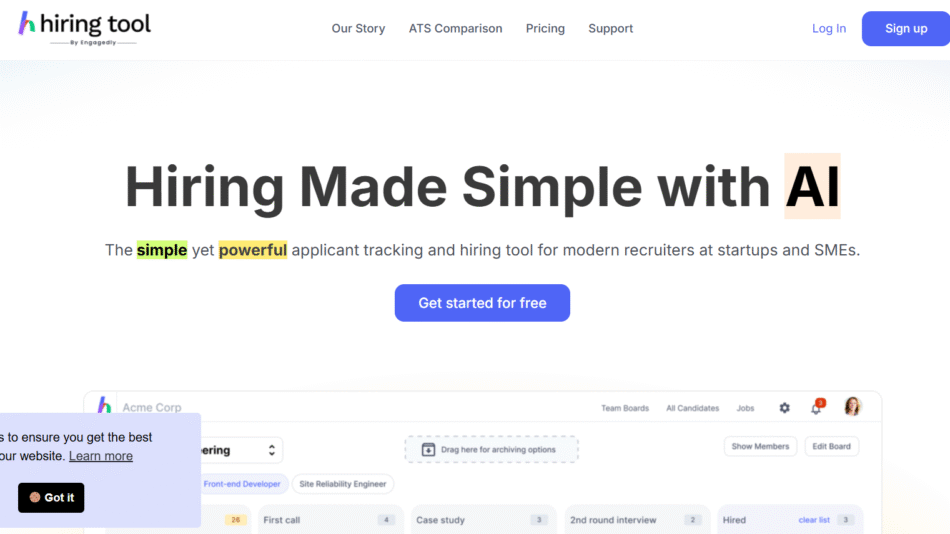Vercel is a powerful cloud platform optimized for frontend development. Designed for developers building modern web applications, Vercel provides the tools and infrastructure needed to develop, preview, and ship websites at lightning speed. It supports frameworks like Next.js (developed by Vercel), React, Vue, Svelte, and more, offering seamless integration and an intuitive development workflow.
With features like real-time collaboration, global content delivery, and edge function deployment, Vercel empowers teams to focus on building high-quality user experiences without worrying about server management or infrastructure complexity.
Vercel is used by developers, startups, and enterprise teams who want fast, scalable, and secure deployment pipelines for their web projects.
Features
Vercel offers an advanced and developer-friendly platform packed with features designed for modern web development.
Framework Support
Out-of-the-box support for Next.js, React, Vue, Svelte, Angular, and more. Optimized for serverless rendering and static generation.
Instant Deployments
Push code to GitHub, GitLab, or Bitbucket and get automatic previews and production deployments with every commit.
Edge Functions
Deploy JavaScript or TypeScript functions globally at the edge to run fast, serverless logic with low latency.
Previews for Every Push
Vercel automatically creates live, shareable preview links for each pull request, making collaboration and QA effortless.
Custom Domains and HTTPS
Easily add custom domains with automatic HTTPS and SSL certificate provisioning.
Global CDN
Your content is delivered through a highly optimized edge network to ensure performance and low latency for users worldwide.
Analytics
Privacy-friendly, built-in analytics give real-time performance insights without cookies or invasive tracking.
Image Optimization
Optimize images on the fly with Vercel’s built-in image handling tools, reducing load times and improving user experience.
Integrations
Deep integration with popular tools like GitHub, Slack, Figma, Sentry, and Datadog for a seamless workflow.
Environment Variables
Manage secrets and environment settings securely for different environments (development, preview, and production).
How It Works
Vercel follows a git-based deployment workflow. Developers connect their repository (GitHub, GitLab, or Bitbucket) and push their code as usual. On each push, Vercel builds the project using its intelligent build system, then automatically deploys it to both a live preview URL and the production site (if merged to the main branch).
The platform handles all aspects of hosting, from setting up infrastructure to delivering content via a global CDN. Developers can add API routes, edge functions, or dynamic logic without managing backend infrastructure.
Vercel is tightly integrated with Next.js, allowing developers to take full advantage of features like Incremental Static Regeneration (ISR), server-side rendering (SSR), and static site generation (SSG). The entire process is optimized for speed, collaboration, and scalability.
Use Cases
Frontend Development
Ideal for building and deploying fast, modern web applications using JavaScript frameworks.
Jamstack Sites
Host static or dynamic sites with fast load times, strong SEO performance, and scalable infrastructure.
Marketing Websites
Deploy pixel-perfect landing pages with custom domains and instant updates through git.
E-commerce
Run performant, scalable storefronts using headless CMSs and serverless functions for cart logic, payments, or user auth.
SaaS Products
Use Vercel to deploy customer dashboards, documentation, and user-facing portals securely and efficiently.
Startups and MVPs
Rapidly prototype and deploy applications without managing complex backend infrastructure.
Design and QA Workflows
Share preview URLs with designers, stakeholders, and testers for instant feedback on any pull request.
Enterprise Development
Scale teams across multiple environments with access controls, analytics, and performance optimization tools.
Pricing
As of June 2025, Vercel offers several pricing tiers:
Hobby (Free)
Best for personal projects and experiments
1 Personal account
Unlimited static deployments
100 GB bandwidth/month
1 GB serverless function execution/month
Automatic HTTPS and preview deployments
Pro – $20/user/month
Designed for growing teams and advanced use cases
Unlimited team members
Increased function execution and bandwidth
Advanced analytics
Custom roles and permissions
1 TB bandwidth/month
100 GB storage
100 GB/month image optimization
Enterprise – Custom Pricing
Custom solutions for large-scale applications and enterprise teams
Guaranteed uptime SLAs
Enhanced security (SSO/SAML, SOC 2 compliance)
Dedicated support
Advanced observability tools
Tailored limits and resource usage
Pricing and usage details are available at https://vercel.com/pricing.
Strengths
Vercel stands out for its simplicity, speed, and seamless developer experience. It reduces deployment friction to near zero — allowing developers to focus purely on building. The instant preview URLs streamline team collaboration, and the edge deployment model ensures top-tier performance regardless of where users access the site.
Its native integration with Next.js gives developers powerful tools like server-side rendering and static generation with almost no configuration. The built-in analytics and image optimization tools remove the need for third-party services.
Vercel also excels in reliability and scalability. Whether you’re deploying a personal blog or a global SaaS platform, the infrastructure scales automatically to match demand.
Drawbacks
Vercel is highly optimized for frontend and serverless projects, which may not suit applications requiring persistent backend services or complex database connections managed server-side.
While pricing is competitive, high-traffic sites or advanced use cases involving large-scale image handling and edge function executions may require upgrading to higher-tier plans or enterprise contracts.
Some advanced backend developers may find Vercel’s “serverless-first” architecture limiting for applications that depend on custom server environments or persistent processes.
Comparison with Other Tools
Compared to Netlify, Vercel offers stronger support for Next.js and server-side rendering. Netlify shines in static site deployment and broader CMS integration, but Vercel leads in performance and developer experience for dynamic and hybrid applications.
Versus Firebase Hosting, Vercel is more frontend-centric and focused on developer workflow, while Firebase integrates deeply with Google Cloud for backend services.
Against AWS or GCP, Vercel offers a far more streamlined experience but sacrifices deep infrastructure control. It’s ideal for teams prioritizing speed, collaboration, and scalability over granular server customization.
Customer Reviews and Testimonials
Vercel is widely praised across the developer community for its ease of use, performance, and intuitive UX. Startups and enterprises alike report faster shipping cycles, reduced DevOps burdens, and improved team collaboration through the platform’s preview features.
Developers appreciate the minimal setup, tight Git integration, and reliable deployments. Design teams value the preview environment that allows for real-time QA. Many companies highlight significant improvements in performance metrics like page load speed, Core Web Vitals, and SEO after migrating to Vercel.
High-profile users include brands like Notion, HashiCorp, The Washington Post, Loom, and OpenAI, underscoring Vercel’s scalability and trustworthiness in production environments.
Conclusion
Vercel is a game-changing platform for modern web development. It streamlines the development-to-deployment process, offering performance, scalability, and collaboration features that empower teams to build and ship better products faster.
Whether you’re a solo developer, a startup founder, or part of an enterprise team, Vercel provides the tools and infrastructure needed to deliver high-quality web applications at scale. With built-in optimization, edge computing, and top-tier developer experience, Vercel is the go-to platform for frontend teams ready to deploy without compromise.















